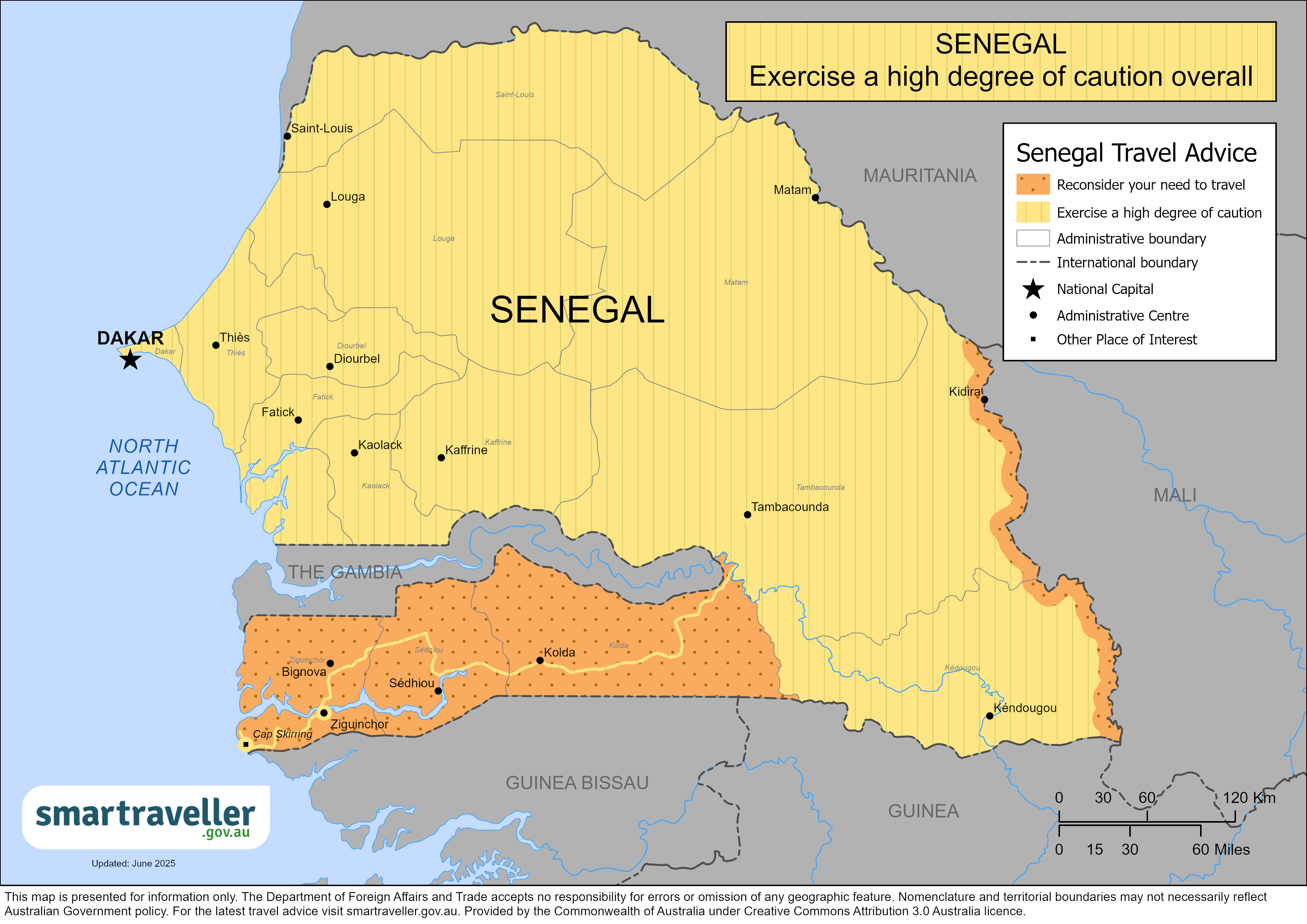Officials or people posing as officials, may try to detain or extort money from foreigners, including at the airport. Unlicensed taxi drivers may try to over-charge tourists arriving at the airport. Pre-arrange transport with your accommodation or a trusted contact.
Stay in hotels that have robust security measures.
In Dakar, muggings and robberies are common. You're most at risk of petty crime in large crowds, or at quiet beaches towards the end of the day. Look out for:
- pickpockets
- bag snatchers
- thieves on motorbikes
Criminals target foreigners, especially at night.
Home robberies happen often, usually in the evenings or early mornings.
To protect yourself from crime:
- don't walk alone
- don't carry bags that are easy to snatch
- avoid wearing conspicuous jewellery and expensive watches
- avoid walking at night, especially in isolated areas
- always lock your doors, even when you're inside
- always keep vehicle doors and windows locked, even when moving
Drink spiking
Drink spiking can happen anywhere. Be alert, don’t leave your food or drinks alone. Watch when your drink is being mixed. If you feel unwell, tell your friends immediately and get to a safe place. Keep an eye on your friends - if they feel unwell, stay with them. Get medical help if needed.
Methanol poisoning
People have died or become very sick from poisoned drinks overseas. This includes Australians. Methanol is highly toxic. As little as one shot can be fatal. Methanol can be added or accidentally created during poor quality alcohol production. Only drink branded, sealed drinks. Get urgent medical help if you think you’ve been poisoned.
More information:
Scams
Internet scams come in many forms, including romance, friendship, business and job offers. These scams often originate in West African countries, including Senegal.
If you travel to Senegal as a scam victim, you may be at risk of kidnapping, assault and robbery. Some scam victims have been killed.
In commercial scams, criminals ask for details of safe bank accounts to transfer large amounts of money. They may:
- promise a percentage of this amount to you
- send fake cashier cheques for urgent goods shipments
- request large fees for a fake government contract
- extort money from you for a bogus business opportunity
In relationship scams, criminals often meet their victims through internet dating sites or chat rooms. Once a connection develops, they may ask you to send money so they can come to Australia.
After you transfer money, the relationship ends.
They may also ask you to come to Africa to meet them.
To protect yourself from scams:
- be wary of online contact from people you don't know
- don't send money to anyone until you've thoroughly checked them
If you suspect a scam, get legal advice.
Don't travel to Senegal to get your money back or to get revenge. You could be in danger.
Kidnapping
Kidnapping can happen anywhere, anytime, including in destinations that are typically at lower risk.
Kidnapping is a threat in the border regions with Mali and the Casamance region of southern Senegal.
The Australian Government's longstanding policy is that it doesn't make payments or concessions to kidnappers.
More information, including advice on how to reduce your risk of being kidnapped:
Cyber security
You could face cyber threats in any country, anyone is a target. Your devices and data can be stolen, especially when using public Wi-Fi, computers, or Bluetooth. Criminals can use stolen information to conduct scams or to resell your personal information.
The Australian Cyber Security Centre has advice on how to protect yourself online.
Social media can also be risky in places with social or political tensions or strict laws. People have been arrested for what they posted online. Check the laws of the destination you’re travelling to and think about what you post on social media. The Australian Government can’t get you out of trouble if you’re accused of breaking the law.
More information:



